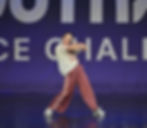COMPETITION RULES
ROUTINE SIZES and TIME LIMITS
Time limits include entrance and exits, and prop setup on stage. If you need more time than what is allotted, please contact us. This is so we can ensure that the event runs smoothly and on time!

SOLOS
(1 Dancer) – 3 minutes

DUETS
(2 Dancers) – 3 minutes

TRIOS
(3 Dancers) – 3 minutes

SMALL GROUPS
(4-9 Dancers) – 4 minutes

LARGE GROUPS
(10-15 Dancers) – 4 minutes

LINES
(16+ Dancers) – 4 minutes*

PRODUCTIONS
(10+ Dancers) – 10 minutes**
*Extra time outside of the 4 minutes can be purchased for $25/minute
**Extra time outside of the 10 minutes can be purchased for $50/minutes

other considerations:
SOLO ENTRIES – Soloists are entered based on their age as of March 31st of the current competitive season.
DUET/TRIO ENTRIES – Duet/Trio entries are based on the average age of all members in the routine. This should be based on their ages as of March 31st of the current competitive season.
GROUP/LINE/PRODUCTION ENTRIES – Groups, lines and productions are calculated by adding the ages of all dancers together and then dividing the total by the number of dancers in the routine. This should be based on their ages as of March 31st of the current competitive season.
*Please note that at Abstract Dance Challenge, the decimal point is always dropped from the average age calculation.
LEVEL DIVISIONS

PRE-COMPETITIVE DIVISION
This division is geared towards dancers who participate in dance more recreationally and have limited or no prior competitive experience but wish for extra performance opportunities. A dancer in this division may compete in no more than 3 routines and train no more than 4 hours per week in regular technique classes.*
Dancers in the Accelerated Division may not compete in this category under any circumstance. A routine must be moved to the Competitive Division if one or more dancers in the routine is an Accelerated dancer, even if the majority are Pre-Competitive dancers.
*If there is a student who may not fit these requirements but the studio owner feels they should be in this category, please email abstractmovementfestivals@gmail.com to arrange for an exception. This is to ensure that every student has a positive experience at dance competition and is competing in the category that best suits their situation.

COMPETITIVE DIVISION
This division is for dancers who take less than 9 hours of dance per week in regular technique classes.

ACCELERATED DIVISION
This division is for dancers who take 9 or more hours of dance per week in regular technique classes and/or have extensive competition experience.
PROPS
Dangerous props are not permitted (i.e. knives, fire, etc.) The following props are also prohibited: glitter or confetti, fog machines, bubble machines, live animals, fluids or paint. Please ensure that no debris is left on stage after your performance is done. If the stage or flooring is damaged as a result of misuse, the studio will be liable for damages.
MUSIC
Music will be played by Abstract Dance Challenge during the event and must be submitted via DanceBUG no later than 10 days before the start of the event. Having a backup of your music is highly recommended.
PHOTOGRAPHY and VIDEO RECORDING
Photography and video recording of any kind are strictly prohibited. A professional videographer and a professional photographer will be on-site for your convenience. A livestream of each event will be available. More information will be available prior to the start of each event.
Photos, videos, and livestream access are included in the media fee.
ADJUDICATION
ADJUDICATORS
A minimum of three adjudicators will be part of our panel of judges for each event. We have ensured that, together, the adjudicators have specific and up-to-date teacher training in multiple styles of dance. The average score of all three adjudicators will be calculated for the final score. Please note that all judging decisions are final.
VIDEO JUDGE
All video adjudications will be available for each studio after the event. Every routine will be recorded with comments from each of the three adjudicators.
FREQUENT ADJUDICATIONS
We strive to have an adjudication every 1-1.5 hours to avoid long wait times between sessional awards.

AGE DIVISIONS

PRESCHOOL
4 years and under

TINY
5-6 years

MINI
7-8 years

JUNIOR
9-10 years

PRE-INTERMEDIATE
11-12 years

INTERMEDIATE
13-14 years

SENIOR
15-16 years

ADVANCED
17-18 years

ADULT
19 years and up

CODE OF CONDUCT
Abstract Dance Challenge prides itself on being a family-friendly event. We want our dancers, parents, teachers, and other spectators to feel comfortable with all of the content observed during the event. Routines and music must be age appropriate and free of inappropriate or suggestive content and profanity, or vulgar language.
Please remember that we are here to encourage dancers to continue to grow as performers as well as young adults. Sportsmanlike behaviour is expected at all times.
Acro Dance
Consists of acrobatic work in addition to dance choreography
Aerial Acrobatics
Is the practice of flying maneuvers involving apparatus such as a trapeze, aerial silk, aerial hoop, rope, or corde lisse.
Character Ballet
Is the telling of a story with characterization with the use of ballet technique on demi-pointe.
Classical Ballet
Is choreographed using classical or contemporary ballet techniques on demi-pointe.
Pointe
Uses classical or contemporary pointe techniques and movement. Dancers must wear pointe shoes.
Contemporary
Is choreographed using contemporary technique and movement, reaching beyond the standard jazz vocabulary.
Ethnic Dance
Is any dance form that originates from a tradition, culture, nationality, or custom, and expresses the movement aesthetics of that ethnicity.
Hip Hop
Is composed of multiple dance styles from a variety of freestyle movements. Hip Hop has many sub-styles including, but not limited to, popping, locking, breaking, house, vogue, funk, and more.
Jazz
Is choreographed using jazz techniques and movement.
Lyrical
Is a mix of ballet and jazz techniques, incorporating emotional and storytelling elements that maintain the theme of the musical selection.
Modern
Is an expressive style of dance that challenges the structured dance technique of classical ballet with the use of movements expressing abstract ideas and pictures.
Musical Theatre/Song & Dance/Novelty
Are theatrical in nature, interpreting a story and/or character from a Broadway show, musical, movie, etc. Lip synching and/or real singing is permitted, but not required in Musical Theatre and Novelty. Song & Dance requires dancers to sing as part of their performance.
Open
Is any combination of genres or does not fall under any other genre recognized or represented in another category.
Tap
Is choreographed using traditional, contemporary, or hoofing techniques, steps, and/or rhythm patterns. No tap sounds are permitted in the music and dancers must wear tap shoes.
Student Choreography
Is when a student choreographs a dance for themselves. This category is to encourage the next generation of choreographers. It is not open to those who have received compensation for their choreography.
Please note: A maximum of 3 acrobatic/gymnastic tricks are permitted in entries competing outside of the Acro Dance, Aerial Acrobatics and Open categories.
DANCE DISCIPLINES
ENTRY RULES
-
Soloists are not permitted to compete a second time within the same category with the exception of Aerial Acrobatics.
-
Soloists may enter as many solos as they wish, however, only their individual highest mark will be considered for highest overall awards.
-
Duet/Trio entries must have a partner change to compete again in the same category.
-
At least 50% of all dancers in each entry must meet the guidelines for the division otherwise the entry must move up to the next one. Dancers in the Accelerated Division may not compete in the Pre-Competitive Division for any reason
-
Judges reserve the right to change the competing dancer’s or group’s category and/or division if they feel the routine has been entered improperly. All judging decisions are final.
-
Coaching by anyone in the wings or audience during the course of a performance for dancers over the age of 6 is strictly prohibited.
-
Any person on stage during a performance must be registered as a dancer in said entry.
-
Entries with a teacher/instructor or professional dancer performing must compete their entry in the adult (19+) age category regardless of the ages of other performers.
-
Abstract Dance Challenge holds the right to refuse service or dismiss any studio or persons for reasons deemed appropriate by Abstract Dance Challenge.
